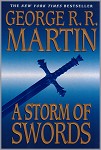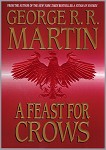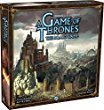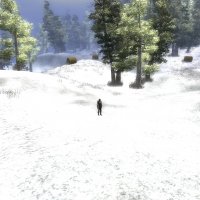Names in the Seven Kingdoms & Beyond |
| World of Westeros - Miscellaneous | |||
| Friday, 29 January 2010 01:03 | |||
|
You have the freedom to name your character as you see fit, but GMs may have some ideas for character names that fit a particular setting. Many traditional, or stereotypical, fantasy names don’t fit well with Westeros naming conventions. Characters from the Seven Kingdoms, the Free Cities, and even the unknown East have a wide variety of names. Common names. Evocative names. Strange names. Names that seem archaic, and names that are only a letter or two off from being entirely familiar. Players should strive to come up with names that evoke the medieval feeling of Westeros to enhance, rather than break, the atmosphere. The custom in the feudal society of the Seven Kingdoms is that commoners, peasants, and smallfolk only have personal names, and it is the province of nobles and highborn to keep family names. Bastards, however, may not take a noble house’s name, but take common surnames based on the land of their origin, such as “Snow” in the North. Characters from the Free Cities follow a variety of name conventions, with either a single personal name, a name and surname, or even more. Dothraki use a single name, often a derivative of their father’s name, and the naming customs of other folk of the eastern lands varies by region, culture, and likely, by village. Personal NamesThere are many types of personal (first) names in “A Song of Ice and Fire.” Some of the names used (Jon, Brandon, Robert, Mya, Beth, etc.) are common enough to most modern readers. Others like Jaime, Desmond, Stannis, Garth, Nestor, etc. are uncommon, but still familiar. Some first names are often thought of as surnames or place names, such as Preston or Stafford. Others are historical in origin, or spelled uncommonly, such as Joffrey, Catelyn, Lysa, Willem, Martyn, or Petyr; another option is to substitute, add, or drop a letter, such as Rickard, Marq, Eddard, Walder, Robb, Robett, Raymun, Lancel, etc. Others, such as the Dothraki names or the folk of the Free Cities, are quite foreign (Xalabar Xho, Syrio Forel, Drogo, etc.). Men in the Nine Free Cities often have names that end with “-o” while women there often have names that end with “a” (as is common in Westeros), “ah,” “eh,” or “ei.” They do seem to follow certain grammatical constructions that are somewhat familiar to us, however; for example, the “io” at the end of Syrio’s name seems Latin in origin, while the names of the Dothraki seem alternately Mongol or Turkish. Names are drawn from a variety of sources, mixing them and twisting them to create a realistic tapestry of characters with suitably evocative and believable names. Some good methods for finding character first names include searching name dictionaries. Names coming from Anglo-Saxon, Celtic, English, French, German, Scottish, or Teutonic sources are a good place to start. Another trick for coming up with new names that seem familiar is to take pieces of two names and combine them in a new fashion: Redmond and Corwin becomes Cormond or Redwin. Family NamesThere are four different ethnic lines of family names in Westeros. By now, the groups are heavily intermingled so there is some blurring, but the most common names are Andal in origin. The older names of the First Men stand out because they are short and descriptive: Stark, Flint, Tallhart, and Glover. Rhoynish names, seen most often in Dorne, are longer and more complex, like Allyrion, Santagar, and Qorgyle. Finally, names like Baratheon, Targaryen, and Velaryon derive from High Valyrian. The choice of a family name for a highborn character can depend greatly on the style of game. For example, if all the characters are from a single house, it would be appropriate for the characters to all have the same surname. If some of the characters are from a different house, they will probably carry the surname of a banner house. If characters are members of the Night’s Watch, few of the black brothers will have surnames, unless they were highborn who took the black. Most of the baseborn in the Night’s Watch have only a single name, and many take (or are given) a nickname rather than use their real name. Since family is of central importance to the folk of the Seven Kingdoms, no new family names are presented here. Players wishing to have family names should consult with the GM to determine what their options are, and should work with them to either find a house mentioned in the setting, or to determine a new house and family name. Occasionally, commoners in the larger cities and towns bear family names, an occurrence when they are from cadet branches of noble houses (such as those founded by children without inheritances). Instead of titles or land, the family keeps the name as a show of status, to distinguish themselves from common folk. Those who hail from the Free Cities, however, use surnames commonly, and are encouraged to pick a family name (often originating from High Valyrian). Lords and SersA knight’s title, “ser,” attaches to his given name, not his house name. Thus, “Ser Ilyn” would be proper. One could also say “Payne,” or “Ser Ilyn Payne,” but not simply “Ser Payne.” The rules for lords are different, as the title, “lord” can be paired with either a man’s given name or his house name. “Lord Stark” and “Lord Eddard” are both correct. Dothraki NamesDothraki do not use surnames. Instead, a warrior refers to himself as “son of” if his father is noteworthy, but never refers to his mother in this fashion. Women in Dothraki society are rarely treated as more than slaves or servants, and thus do not carry the honour of their fathers’ names. Though the view of Vaes Dothrak in A Game of Thrones does not present any women of fame or stature, there are undoubtedly female warriors who defy the Dothraki custom and take up arms like men. These women are likely viewed equally as strange as their counterparts are in the Seven Kingdoms. Bastard NamesIt is customary in the Seven Kingdoms, by royal decree, for bastard children to take a name based upon the region in which they are born. These are as follows: Flowers (the Reach), Hill (the Westerlands), Pyke (the Iron Islands), Rivers (the Riverlands), Sand (Dorne), Snow (the North), Stone (the Vale), Storm (the Stormlands), and Waters (Dragonstone and King’s Landing). Bastards can be legitimised by royal decree, such as when Aegon IV legitimised his bastards upon his deathbed. His bastard son Daemon, likely known as Daemon Waters previously, took the name Blackfyre after receiving the Targaryen sword of the same name. Nicknames and EpithetsCharacters are often distinguished by colourful nicknames, such as Bronze Yohn Royce; Jon Umber, called the Greatjon; Jon Umber, called the Smalljon; Tyrion Lannister, the Imp; Petyr Baelish, known as Littlefinger; or Euron Greyjoy, called Crow’s Eye. Sometimes these epithets are testimony to an aspect of the character, as is the case with “the Mountain That Rides,” Ser Gregor Clegane, Ser Jaime Lannister “the Kingslayer,” or Ser Barristan “the Bold.” These nicknames can have more significance than their bearer’s real name, like Lady Tyrell’s title as “the Queen of Thorns,” or Ser Doran Martell’s infamous moniker, “the Red Viper.” A character can also append information about their home to their name, such as the unfortunate Ser Hugh of the Vale. Nicknames can even replace real names, such as the unofficial custom at the Wall, where belligerent trainers often dub raw recruits with unflattering nicknames like Toad, Pimple, and Aurochs. Their fellow recruits may remember the nicknames better than the real names, and the unfortunate souls have to live under cruel epithets until they can otherwise distinguish themselves. As in life, a nickname is something a character should earn in the course of play, not choose for him or herself. It should reflect how he or she is viewed in the world. GMs might award a character a nickname during the course of play, perhaps as a manifestation of his or her Reputation.
|
|||
| Last Updated on Friday, 24 June 2011 16:12 |






















